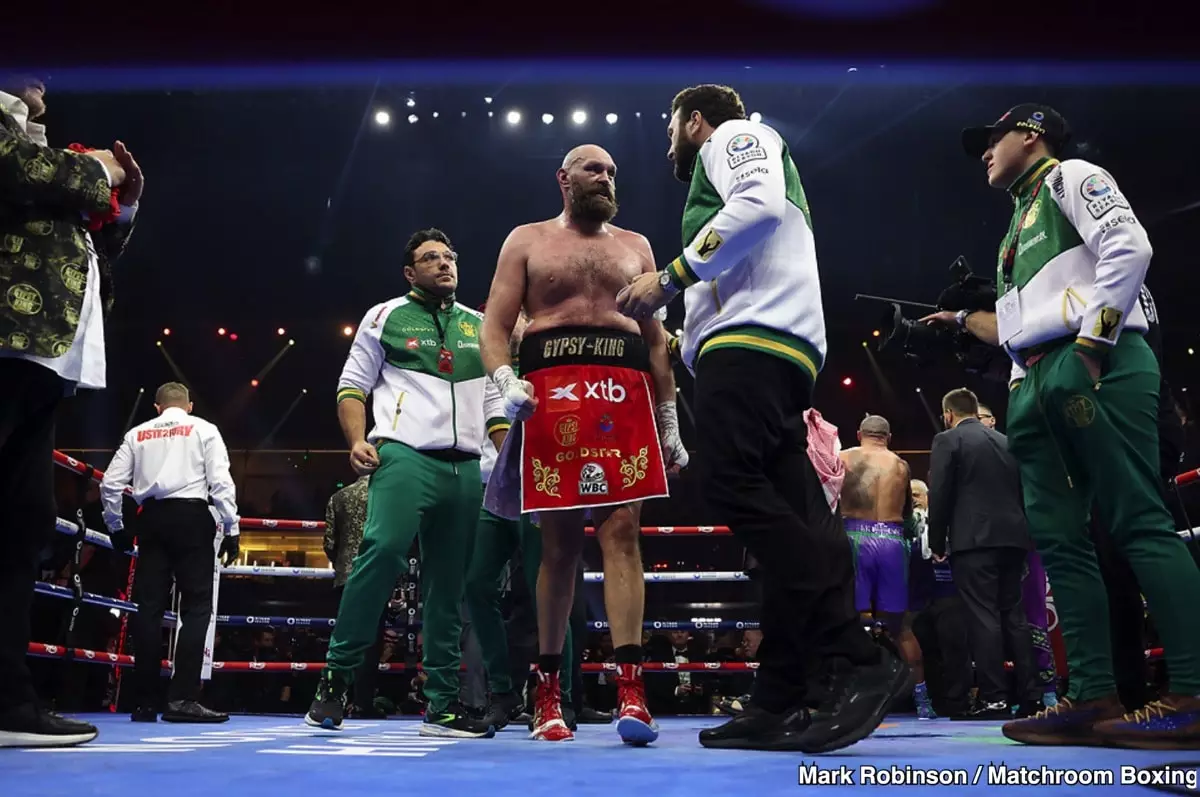The boxing world witnessed yet another chapter in the storied rivalry between Tyson Fury and Oleksandr Usyk last Saturday, December 21st, in Riyadh. This time, the stakes were higher, and Fury, once a goliath in the ring, faced his adversary as a blemished fighter. Fury’s unanimous decision loss, with all three judges scoring it 116-112 in favor of Usyk, highlighted a startling decline in the former WBC heavyweight champion’s performance. The fight left fans pondering whether Fury fundamentally misunderstood his own capacity and tactics as he attempted to reclaim glory against a revitalized Usyk.
Fury’s performance in the rematch starkly contrasted with his earlier encounters, particularly the memorable bout against Wladimir Klitschko in 2015, which solidified his reputation as a boxing marvel. In the latest fight, his movements appeared sluggish and burdened, reminiscent of an athlete well past his prime. The Fury who dominated Klitschko was nowhere to be found; rather, we saw a fighter who lacked the agility and spark necessary to compete effectively. Analysts and fans alike were left wondering if age and the physical toll of the sport had finally caught up with him.
The numeric representation of the judges’ scores, though somewhat deceptive, underscored an undeniable truth: Fury’s inability to land effective strikes often resulted in him looking for the safety of clinches rather than pursuing victory. The fire he displayed in previous fights had diminished, replaced by a hesitant approach resulting in a lackluster offensive output. For someone who was once celebrated for his unorthodox style and deft footwork, Fury seemed to have relinquished his signature, fluid movements in favor of a more stagnant strategy that did him no favors against Usyk’s speed and agility.
One of the most glaring errors in Fury’s preparation for the rematch was his significant weight gain, which he seemingly presumed would provide him an advantage similar to what he had against Deontay Wilder. This calculation backfired spectacularly, as Usyk’s deft footwork and ability to maneuver around Fury’s bulk rendered the former champion’s size ineffective. Instead of leveraging his mass to dominate, Fury became a stationary target, struggling to adapt to Usyk’s innovative fighting style.
Moreover, Fury’s late-fight strategy created further complications for him. He lacked urgency in his corners, where his trainer, SugarHill Steward, failed to convey the critical nature of the final rounds. A knockout was not just desirable; it was essential for Fury’s redemption. The trainer’s oversight in not communicating the true urgency of the situation showcased a problematic lack of awareness that could ultimately be deemed reckless. When Fury should have been pressing forward, rallying for a comeback, he instead reverted to conservatism, underscoring a misjudgment that could haunt his career.
As speculation grows surrounding Fury’s potential retirement after two fights with Anthony Joshua, the narrative pivots to whether the boxer can reclaim his former brilliance. Boxing is a cruel arena that demands adaptation and resilience, yet Fury, despite his storied history, might be at a crossroads. The fight against Usyk could serve as the tipping point where Fury must reevaluate not only his physical readiness but also his team. The prospect of moving on to a new trainer may echo the tumultuous changes that successful athletes often endure as they strive to recapture past glories.
Ultimately, Tyson Fury’s rematch with Oleksandr Usyk serves both as a warning and a lesson in the ever-evolving landscape of boxing. Understanding the speed of change in this sport can be the difference between maintaining legacy and floundering in the wake of hasty decisions. As Fury contemplates his future, one could only hope that the insights garnered from this fight will lead him toward an enlightened approach—should he decide to step inside the ring again. The fate of his legacy may hinge on the lessons learned from this disappointing chapter.

